|
|
|
Editor's note
|
|
Kia ora koutou katoa and welcome to your New Zealand newsletter.
This week, Matthew Hall, at Victoria University of Wellington, explores our relationship with the living world and why it seems so hard for us to take steps to redress the decline of biological diversity. He writes that our view of plants and animals as natural resources is deeply embedded, but that we will need to reframe this perspective to one of kinship to motivate people to care and make the loss of the living world real.
After months of deliberations, the government recently announced a partnership with the farming sector, with a five-year plan to quantify and price farm emissions by 2025. The announcement comes at the end of a consultation period on proposed changes to water quality legislation, and Mike Joy, also at VUW, argues that the strong links between agricultural emissions to the atmosphere and water should have been considered.
Climate Explained continues and this week explores why Mars is a cold planet, even though its atmosphere is mostly carbon dioxide, and political scientist Dominic O'Sullivan looks at Canada’s election results and whether a system of proportional representation, such as New Zealand’s MMP, would better reflect the will of the people.
Many thanks for reading. You’ll find many more stories on the New Zealand page and The Conversation’s international editions. Ka kite anō.
|
Veronika Meduna
New Zealand Editor
|

|
|
Top stories
|
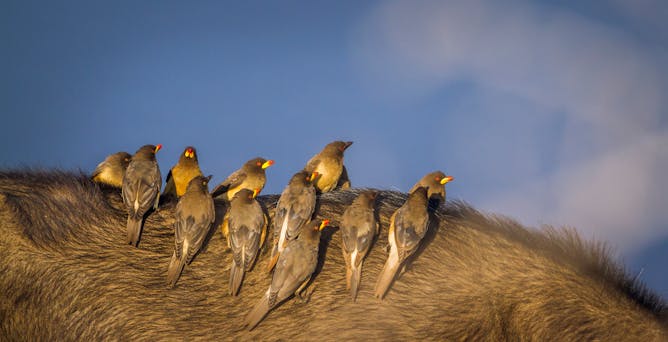
Framing nature in terms of kinship can motivate people to care about the loss of biodiversity.
from www.shutterstock.com
Matthew Hall, Victoria University of Wellington
Our prevailing relationship with nature is based on framing the living world as a set of natural resources. This utility-based worldview perpetuates the drivers of ongoing biodiversity loss.
|

The atmosphere of Mars is thin and very dry.
NASA's Mars Reconnaissance Orbiter
Paulo de Souza, Griffith University
The atmosphere of Mars is more than 96% carbon dioxide, but the planet is cold because its atmosphere is extremely thin, very dry and further away from the Sun.
|
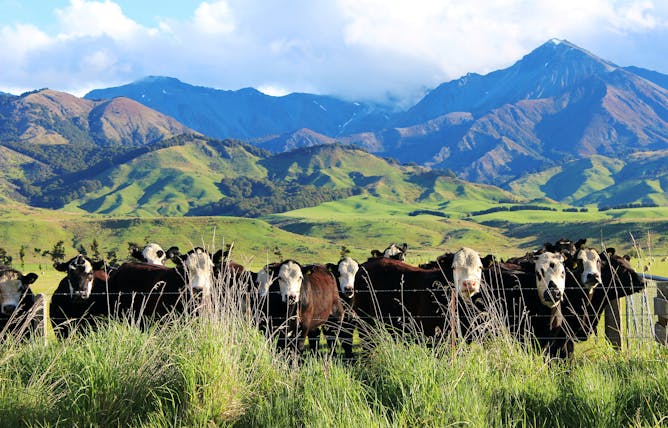
The New Zealand government has announced a partnership with the farming sector to develop voluntary measures to reduce farm emissions.
from www.shutterstock.com
Michael (Mike) Joy, Victoria University of Wellington
The New Zealand government's decision to partner the farming sector to encourage voluntary reductions in farm emissions failed to acknowledge that agricultural emissions also affect water quality.
|

Canadian Prime Minister Justin Trudeau and New Zealand Prime Minister Jacinda Ardern
arrive at the Commonwealth Heads of Government 2018 meeting in Windsor, England, in April 2018. New Zealand moved from the first-past-the-post electoral system in 1993 to a system that helped put Ardern in power.
(AP Photo/Frank Augstein)
Dominic O'Sullivan, Charles Sturt University
Unlike Canada's newly elected House of Commons, New Zealand’s parliament reflects the will of voters. So do other proportional representation systems. Canada has plenty of choice.
|
From The Conversation's international editions
|
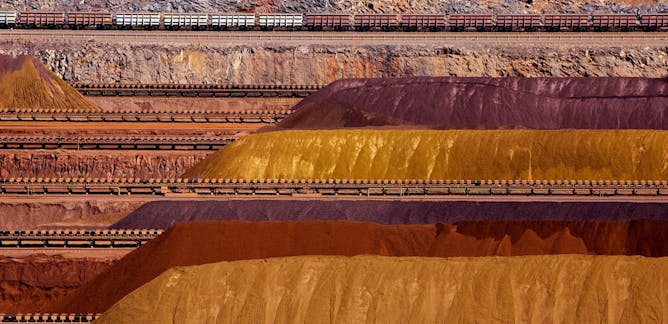
Ross Garnaut, University of Melbourne
Eminent economist Ross Garnaut says if climate action fails, he fears the consequences 'would be beyond contemporary Australia'. But zero-emissions iron and aluminium could be the way forward.
| |
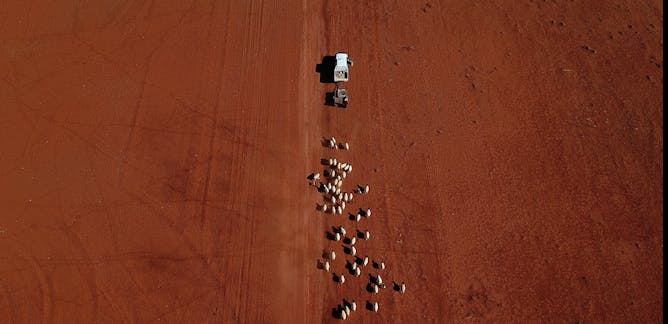
Thomas Newsome, University of Sydney; William Ripple, Oregon State University
What if the nightly news had regular updates on forest clearing, ocean temperatures and fossil fuel consumption? These indicators sit alongside temperatures as signs of climate change.
|

Donna West Brett, University of Sydney
30 years after the fall of the Berlin Wall, covert surveillance images offer us an unparalleled look at the lives of people trying to escape from the east to the west.
| |
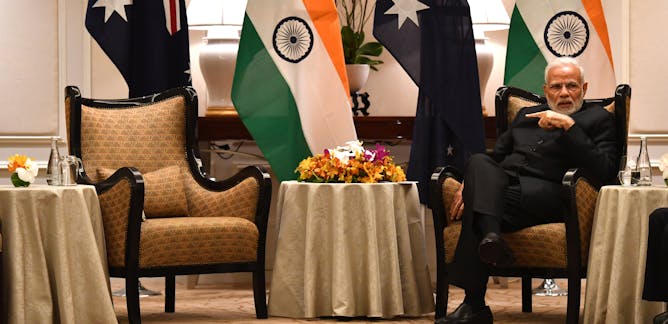
Pat Ranald, University of Sydney
Australia was hoping to get broader access to Indian markets as part of a new trade deal that covers almost half of the world's population.
|
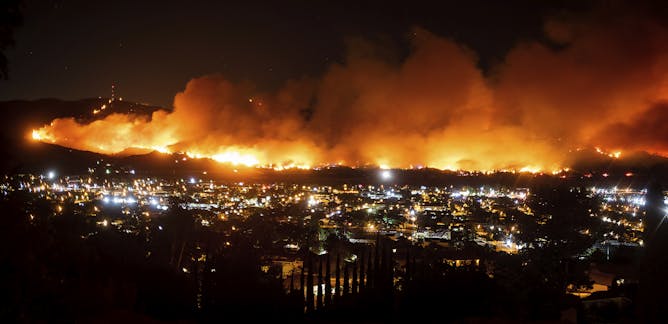
Stephanie LeMenager, University of Oregon
'California is America fast-forward,' writes one scholar. Does that mean that the dystopian infernos that have consumed parts of the state are simply a picture of what awaits the rest of America?
| |
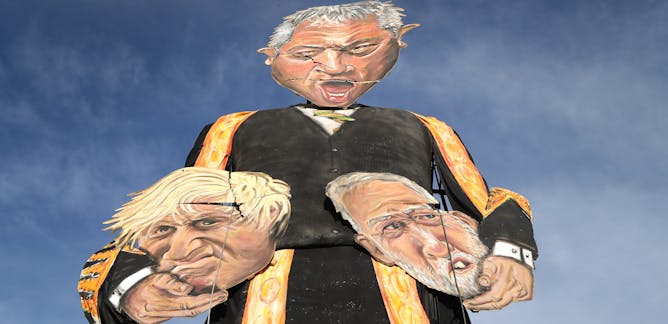
Matt Walsh, Cardiff University
Which messages and formats are cutting through the most?
|

Monica Clua Losada, University of Texas Rio Grande Valley; David J. Bailey, University of Birmingham
A new group – Tsunami Democràtic – are using technology to create civil disobedience that is more organised and creative than ever.
| |
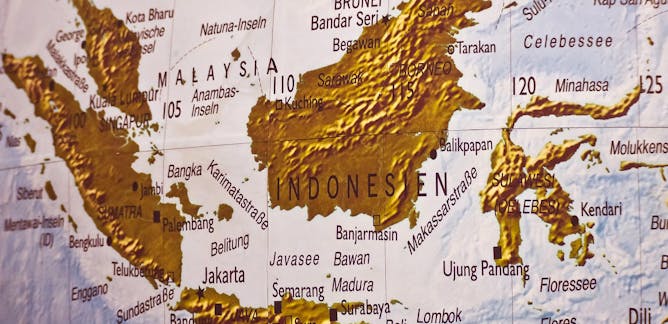
Yety Rochwulaningsih, Universitas Diponegoro
President Joko "Jokowi" Widodo announced the ambition on becoming a global maritime fulcrum in his first term. Not much progress has been made.
|
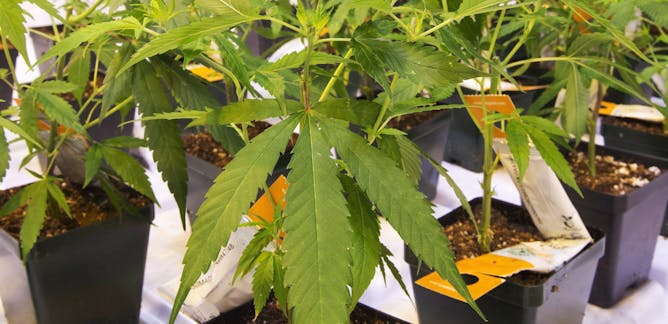
Stephanie Lake, University of British Columbia; M-J Milloy, University of British Columbia
Cannabis use is common among trauma survivors, and may improve some of the symptoms of those with PTSD.
| |
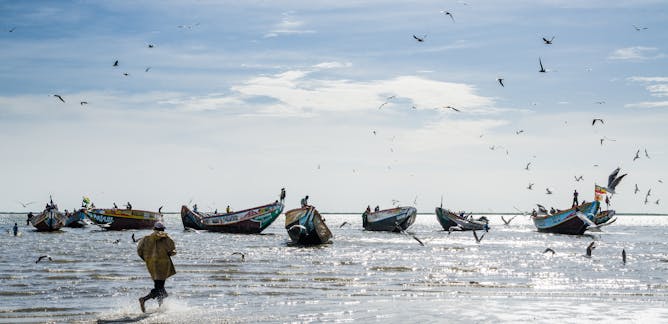
Ifesinachi Okafor-Yarwood, King's College London
The EU continues to enter into fresh agreements with countries, despite evidence of serious population declines in the species of interest.
|
|
|
| |
| |
| |
| |
| |
| |
|
|
|
|
|
|
|